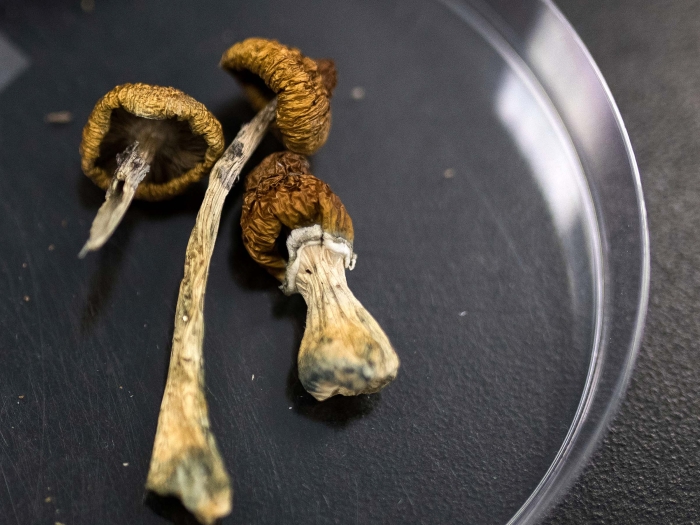Showing 1-15 of 205 results

Health Lab
A melanoma survivor shares facts and tips about preventing all types of skin cancer.

Health Lab
Recent developments represent a dramatic change from long standing federal policy around these substances that has historically criminalized their use and blocked or delayed research efforts into their therapeutic potential.

Health Lab
The availability of clinical trials of new treatments for cancer varies greatly by geography, and a new study shows more socially vulnerable areas have far fewer.

Health Lab
A research team, led by Michigan Medicine and in partnership with Hurley Medical Center, finds that nearly three-quarters of patients at a clinic in Flint, Mich., a community that is predominantly Black and socioeconomically disadvantaged, had neuropathy — of which 75% was undiagnosed.

The Fundamentals
Today on The Fundamentals, our guest Dr. Martin Myers, Director of the U-M Elizabeth Weiser Caswell Diabetes Institute, discusses diabetes research in the context of Ozempic, Wegovy, and other drugs that are changing how people think about weight loss.
You can learn more about Dr. Myers here, and you can follow the department of molecular and integrative physiology @UMPhysiology on X.

The Fundamentals
Today on The Fundamentals is Dr. Maria Castro, the R.C. Schneider collegiate professor of neurosurgery, and a professor of cell and developmental biology at the University of Michigan Medical School. Her research program aims to develop immunotherapies for primary and metastatic brain cancer, studying basic immune biology mechanisms leading to clinical implementation. She has been inducted into the American Association for the Advancement of Sciences, the Latin American Academy of Sciences, and the American Institute for Medical and Biological Engineering College of Fellows. She has won numerous awards for her contributions to basic science and cancer research and is a diversity ambassador for the Cancer Biology Graduate Training Program.
You can learn more about Dr. Castro here, and you can follow her @castro2355_mg, the Rogel Cancer Center @UMRogelCancer, the department of neurosurgery @umichneuro, Michigan Neurscience Institute @UM_MNI and the department of cell and developmental biology @UMCDB on X

Health Lab
A study led by University of Michigan Health Rogel Cancer Center researchers identifies novel biomarkers in renal cell carcinomas.

Health Lab
People over 50 of all backgrounds say they’re most concerned about various kinds of health costs affecting people their age, including insurance, prescriptions, medical care, dental care and home or longterm care.

Health Lab
Building a comprehensive human kidney cell and tissue catalog could help develop more treatments for kidney disease.

Health Lab
Experts in brain cancer outline current discoveries and offer a path of hope for glioblastoma treatment

Health Lab
Researchers have used advanced computer algorithms to uncover distinct molecular subgroups of kidney diseases, independent of clinical classifications. These findings have significant implications for personalized treatment approaches.

Health Lab
A new urine-based test addresses a major problem in prostate cancer: how to separate the slow growing form of the disease unlikely to cause harm from more aggressive cancer that needs immediate treatment.

Health Lab
Researchers recently revealed a new mechanism behind antiphospholipid syndrome that the investigators hope will eventually allow treatments to be targeted closer to the source of the problem.

Health Lab
The FDA approved the use of a therapeutic device invented and developed at the University of Michigan for use in children with acute kidney injury and sepsis or a septic condition requiring continuous kidney replacement therapy.